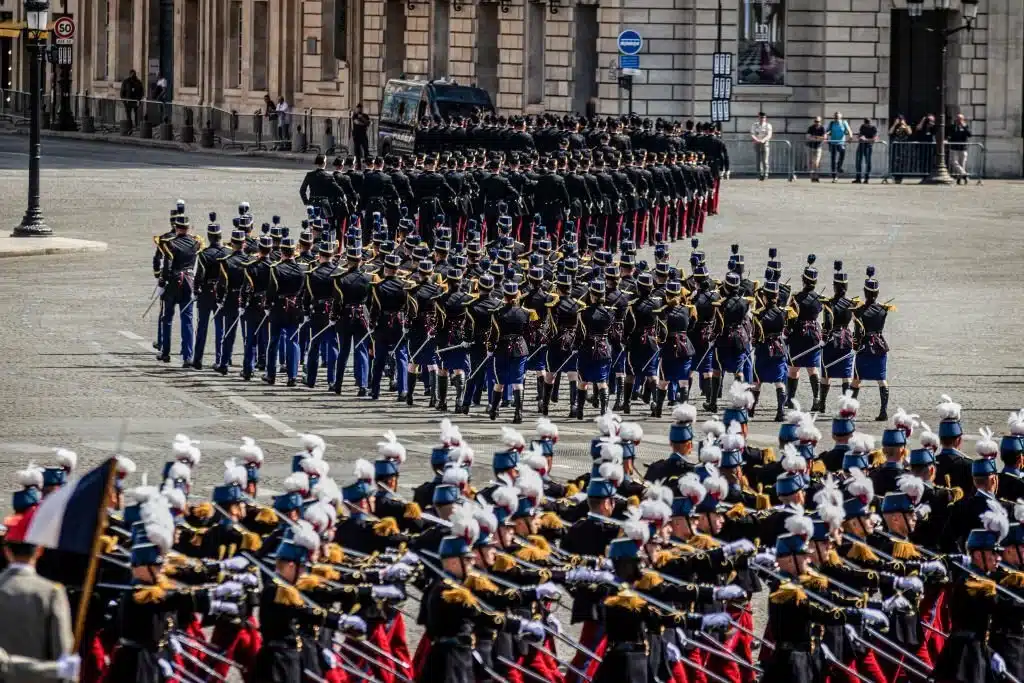If you love France, its culture, and its heritage, you should not miss the France National Festival, also known as Bastille Day. Every year, on July 14th, French citizens and enthusiasts come together to celebrate their France National Festival with fireworks, military parades, and cultural festivities. In this article, we will explore the history, significance, and celebration of Bastille Day in France. We will also answer some frequently asked questions about the event.
History of France National Festival
Bastille Day is celebrated to commemorate the storming of the Bastille prison on July 14, 1789. The Bastille was a symbol of royal tyranny and was seen as a political prison by the French people. The storming of the Bastille by a group of revolutionary citizens marked the beginning of the French Revolution and the end of absolute monarchy in France.
The first Bastille Day celebration was held in 1790, a year after the storming of the Bastille. It was called the Fête de la Fédération and was meant to commemorate the unity of the French people. It was celebrated with military parades, fireworks, and communal feasts.
Significance of France National Festival
Bastille Day represents the values of freedom, equality, and fraternity, which are the cornerstones of the French Republic. It is a day of national unity and pride for the French people, who celebrate their cultural heritage and identity. It is also a symbol of the triumph of democracy over tyranny and oppression.
Celebration of France National Festival
Bastille Day is celebrated throughout France with grand military parades, fireworks, and cultural events. The largest and most famous parade takes place in Paris, on the Champs-Élysées avenue. The parade is led by the President of the French Republic and includes troops from different branches of the French military, as well as police and emergency services.
Apart from the parade, there are also fireworks displays, concerts, and communal feasts held across the country. Many museums, historical sites, and cultural centers offer free admission on Bastille Day. The celebrations last late into the night, with fireworks lighting up the sky over the city.
Bastille Day FAQs
Q: What is the significance of the Bastille prison?
A: The Bastille prison was a symbol of royal tyranny and was seen as a political prison by the French people. The storming of the Bastille by a group of revolutionary citizens marked the beginning of the French Revolution and the end of absolute monarchy in France.
Q: Why is Bastille Day celebrated on July 14th?
A: Bastille Day is celebrated on July 14th to commemorate the storming of the Bastille prison on that day in 1789.
Q: What happens during the Bastille Day parade?
A: The Bastille Day parade takes place on the Champs-Élysées avenue in Paris and includes troops from different branches of the French military, as well as police and emergency services. It is led by the President of the French Republic.
Q: What other cultural events take place during Bastille Day?
A: Apart from the military parade, there are also fireworks displays, concerts, and communal feasts held across the country. Many museums, historical sites, and cultural centers offer free admission on Bastille Day.
Q: How do French people celebrate Bastille Day?
A: French people celebrate Bastille Day with grand military parades, fireworks, and cultural events. The celebrations last late into the night, with fireworks lighting up the sky over the city.
Conclusion
Bastille Day is a celebration of French culture, heritage, and identity. It represents the values of freedom, equality, and fraternity, which are the corner stones of the French Republic. It is a day of national unity and pride for the French people, who come together to celebrate their history and traditions.
The celebration of Bastille Day is a reflection of the French people's deep sense of identity and cultural heritage. It is a reminder of the struggles and sacrifices of their ancestors, who fought for democracy and freedom. It is a day of joy and festivity, but also a day of remembrance and reflection.
References:
- "Bastille Day in France." Time and Date. Retrieved from https://www.timeanddate.com/holidays/france/bastille-day.
- "Why is Bastille Day Celebrated?" France.fr. Retrieved from https://www.france.fr/en/celebrate/bastille-day-why-celebrated.
- "Bastille Day." The History Channel. Retrieved from https://www.history.com/topics/france/bastille-day.
Featured Image Credits: SOPA Images/Getty Images
